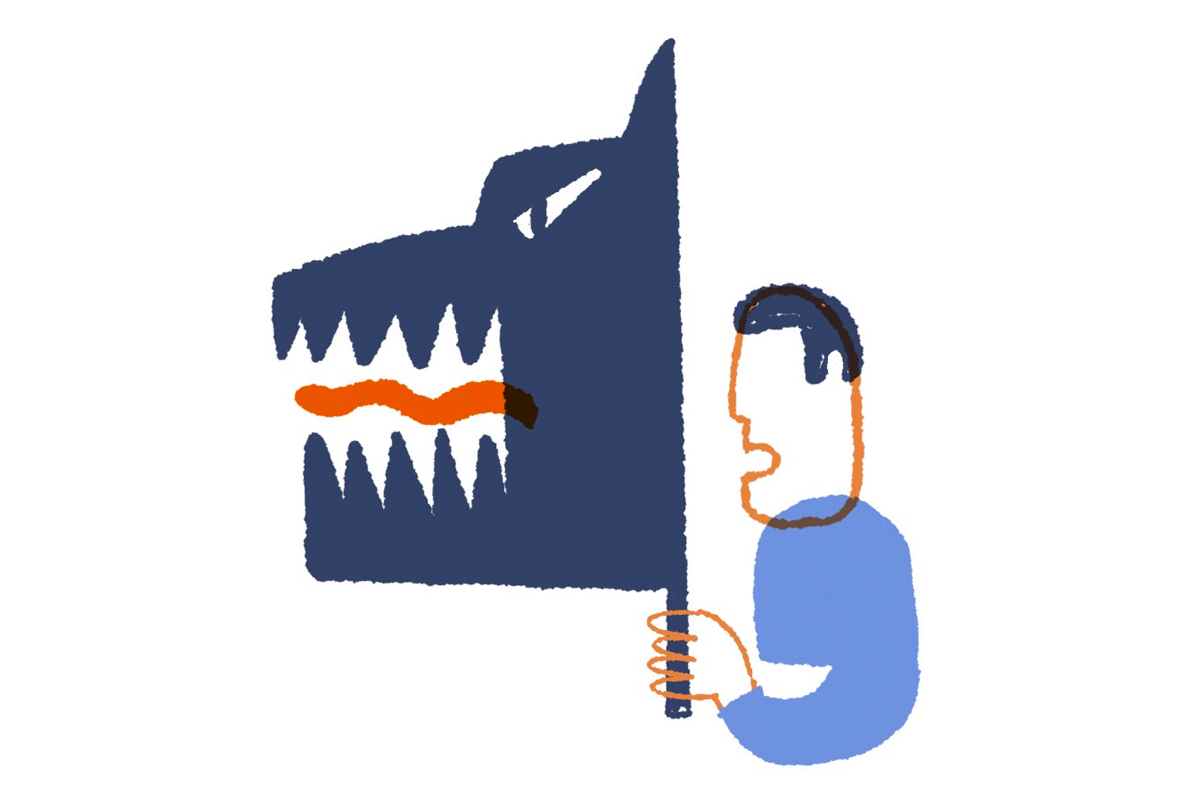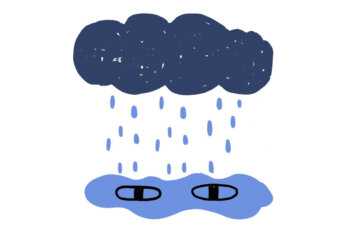

POLITICS / NOVEMBER 2024
Does Poilievre Represent a Threat to Canadian Identity?
To be honest, I’m not particularly worried
BY PAUL WELLS
ILLUSTRATION BY JAMIE BENNETT
Published 7:44, SEP. 18, 2024
On his way to the Conservative leadership, Pierre Poilievre called Jean Charest a Liberal and Patrick Brown a liar. More recently, he’s called opioid policy in British Columbia wacko and Montreal’s mayor incompetent. He’s expressed support for Freedom Convoy protesters and disdain for lobbyists. He wants to defund the CBC. Will he coarsen the national character?
If I’m being honest, I have to say I’m not particularly worried.
Let me tell you a story. In 2015, a producer called to ask whether I wanted to come on their Sunday-night TV news to predict the new Justin Trudeau government’s effect on Canada’s international reputation. At last, a government that believed in peacekeeping and fighting climate change! How would the world react?
I was always pleased for a call from the Sunday-night news, because in those days, they would actually fly me in from Ottawa to join the panel, on set, in Toronto. But I am stuck with what I know. I said few people in the world are aware of who is governing Canada at any moment. And their opinions of Canada depend more on social interactions with Canadians than on news reports about its government. Finally, I said, the Trudeau government’s actions on climate and peacekeeping would matter more than its promises.
The producer thanked me for my time. That Sunday, I watched from home while somebody else on the panel applauded the new era.
I dredge this memory up because I have been asked to anticipate Pierre Poilievre’s effect on Canada’s character if he wins the next election. Will there be a “Poilievre Effect” on the national discourse, the mood, the national soul itself? The question is worth asking. But I think it’s important to begin by reminding ourselves that Canada’s character, for better or worse, is not usually transformed by a simple change in government.
Some civics. Canada is a federation that reserves great responsibilities for its provincial governments and delegates considerable power to its cities. Parliament and the public service are terrible slogs for any government trying to get anything done. In Ottawa, we attach significance to whether a government holds a majority or a minority of the seats in the House of Commons. But this ignores the many limitations on even a majority government’s manoeuvring room—the parliamentary rulebook gives the opposition lots of tools for bringing things to a grinding halt. In the twenty years since 2004, we’ve had majority governments for only eight: Stephen Harper’s last government, formed in 2011, and Trudeau’s first, in 2015. I think neither man would characterize those years of peak authority as a cakewalk.
Above all, if I may use an unpopular word, Canada is a free country, whose citizens are free, on most days, to ignore their governments. Most exercise this freedom with enthusiasm, to the vexation of their leaders.
This is worth remembering, because new governments always say they’ll change everything, and because their opponents always fear it’s so. In 2003, as Canada prepared for Paul Martin to become prime minister, former New Brunswick premier Frank McKenna told the Globe and Mail that Atlantic Canada, in particular, would never be the same. “Paul’s view is that if anything is to be done it has to be transformational. It can’t be the old ways of doing things. It has to be a transformational investment that is virtually guaranteed to result in more equality between Atlantic Canada and the rest of Canada.”
In hindsight, how would you say Paul Martin transformed Atlantic Canada? How about Stephen Harper? Or Justin Trudeau? This can be a hard country to turn.
In 2015, after nine years of Harper, Trudeau promised what he called “sunny ways.” Nine years later, I would not say Canada’s ways are particularly sunnier. To me, the country is more worried, less confident, and, according to research from the Centre for Media, Technology, and Democracy, measurably more confrontational in its politics. But it would flatter Trudeau unduly to blame him for the decline in social trust or to thank him for saving us from the worst. Any prime minister would have had to govern through COVID-19, Brexit, the Trump presidency, the rise of social media, and a more belligerent China. To a greater extent than he ever anticipated, I think he’s had to be a spectator. It would be no different for Poilievre.
One more thing. I think people who are bewildered by Poilievre’s sometimes harsh and cutting tone could stand to think harder about why he’s that way. In June, during a campaign stop in Montreal, he gave a brief and surprisingly candid interview to a Montreal Gazette reporter, Aaron Derfel. It deserves more attention than it’s received.
“I think that compassion is measured in results, not in words or gestures,” Poilievre said. “So it’s not about, you know, standing up, putting your hand on your heart and bursting into tears to plead with people, to make them believe that you care more than the other guy. It’s about: what do you actually deliver?”
Derfel pushed a little harder. Why is Poilievre such a “glib put-down artist”?
“I think when politesse is in conflict with the truth, I choose the truth,” he replied. “I think we’ve been too polite for too long with our political class.”
I think there are a lot of people who agree with that. That Poilievre speaks to them is no guarantee he’ll succeed in power, of course. That’ll be a daily struggle, and there will be days when he will need allies he’s glibly put down. But is he mad to talk the way he does? Does he represent a threat to some citadel of Canadian propriety that’s beyond reproach or question? No and no.










